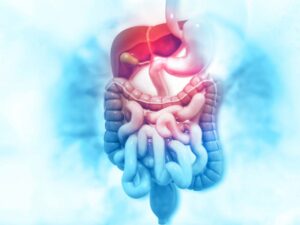Neurogenic Bowel with Spina Bifida Treatment
Already know that you have neurogenic bowel because of spinal bifida and enema is not working for you?
Many people with spina bifida already use the PIE Device. See if you qualify for the PIE Device with this quick 5-question form.
Learn more about Spina Bifida Bowel Care
Introduction to Spina Bifida Bowel Problems
Spina bifida is a birth defect that occurs when the spine and spinal cord do not form properly. It can cause a range of physical and neurological problems, including bowel issues. In this article, we’ll take a look at what causes bowel problems in people with spina bifida and how they can be treated.
Bowel problems in people with spina bifida are caused by neurogenic bowel, a condition that affects the muscles in the digestive system. This occurs when there is damage to the nerves that control these muscles. Neurogenic bowel can lead to a range of problems, including constipation, diarrhea, and incontinence (losing control over bowel movements).
Spina bifida is one of the medical conditions that can cause neurogenic bowel, along with other conditions that affect the nervous system, such as multiple sclerosis and spinal cord injuries. It can also be a complication of surgery on the pelvis or lower spine.
What are the Complications of Neurogenic Bowel?
Several issues can result from irregular bowel motions, including:
- Constipation: Constipation is characterized by difficulty passing stools that are hard and dry. It may hurt and be uncomfortable.
- Fecal Impaction: Stool accumulation in the colon. It frequently occurs as a result of neurogenic bowel and chronic constipation.
- Incontinence: A person who experiences incontinence has accidents when they can’t control their bowel movements. In addition to causing skin irritation, it can be embarrassing.
How do I Diagnose Neurogenic Bowel?
If you have spina bifida, you likely already have a doctor that knows about your bowel troubles. If they have never explicitly stated that you have neurogenic bowel, it may be a good question to ask them.
Most of the time, physicians will make the diagnosis without any additional exams, especially for people with spinal bifida.
How is Neurogenic Bowel treated?
There are a few different treatment options for neurogenic bowel, ranging from least to most invasive:
- Increasing Fiber and Fluid Intake: The first option is consuming more fiber and drinking more water. This will help pull more water into your stool and may lead to softer stools. Oftentimes, people with spina bifida will not be able to entirely address their bowel problems with just fiber and fluids.
- Bowel Training: This entails creating a regular schedule for bowel motions and employing methods to assist with bowel emptying. It is like getting your body into a routine. The use of bowel training may be combined with medicine and other forms of treatment like the PIE Device.
- Medications: Laxatives are often used to help with bowel care. They can help to soften the stool, increase bowel movements, and reduce constipation. Commonly used medications include laxatives, stimulants, and anti-inflammatory agents.
- Laxatives are drugs that help to soften the stool and stimulate the bowel to move. Stimulant laxatives work by stimulating the muscles in the intestine to contract and move the stool through the bowel. Bulk-forming laxatives absorb water in the intestine to increase the volume of the stool and promote bowel movements.
- Stimulants stimulate the muscles in the intestine to contract and move the stool through the bowel.
- Anti-inflammatory agents reduce inflammation in the intestine and may improve bowel function.
- Assistive Devices: There are several assistive devices available for managing neurogenic bowel, including enemas and suppositories. These are inserted into the rectum to soften the stool and stimulate the bowel to move. They can be used on an as-needed basis or as part of a regular bowel management routine. These are effective for some people while other people are unable to have sufficient bowel movements with enemas and suppositories since these primarily function in the rectum and descending colon.
- Pulsed irrigation evacuation (PIE) Device: The pulsed irrigation evacuation (PIE) device is an FDA-cleared device that uses pulses of water to clean out the bowel. Many research studies have shown that it is safe, reliable, and effective way to help people who are not able to get proper relief with laxatives or enemas. This is the best option for people trying to avoid having a bowel resection or colostomy surgery. To see if you qualify, click the button below:
- Surgery: In some cases, surgery may be necessary to manage the neurogenic bowel. Options may include bowel resection (removal of a section of the intestine) or the creation of a colostomy (an opening in the abdomen through which the stool is collected in a bag). Surgery is typically reserved for cases where other treatment options have not been effective or when there is a blockage in the intestine.
People with spina bifida often suffer from neurogenic bowel. However, this does not mean that you have to live in discomfort for the rest of your life. Create a bowel care plan that works well for you and your needs.





